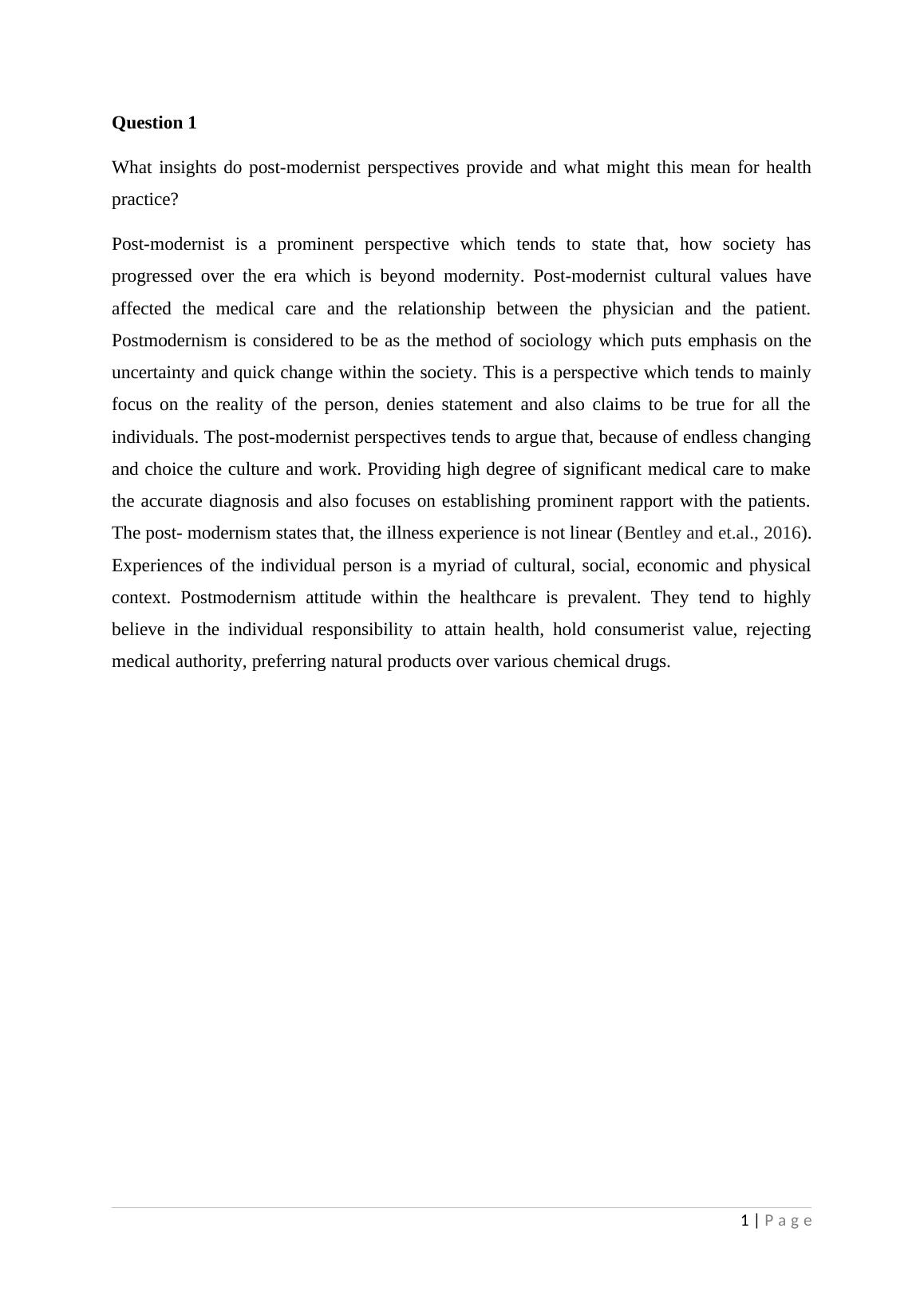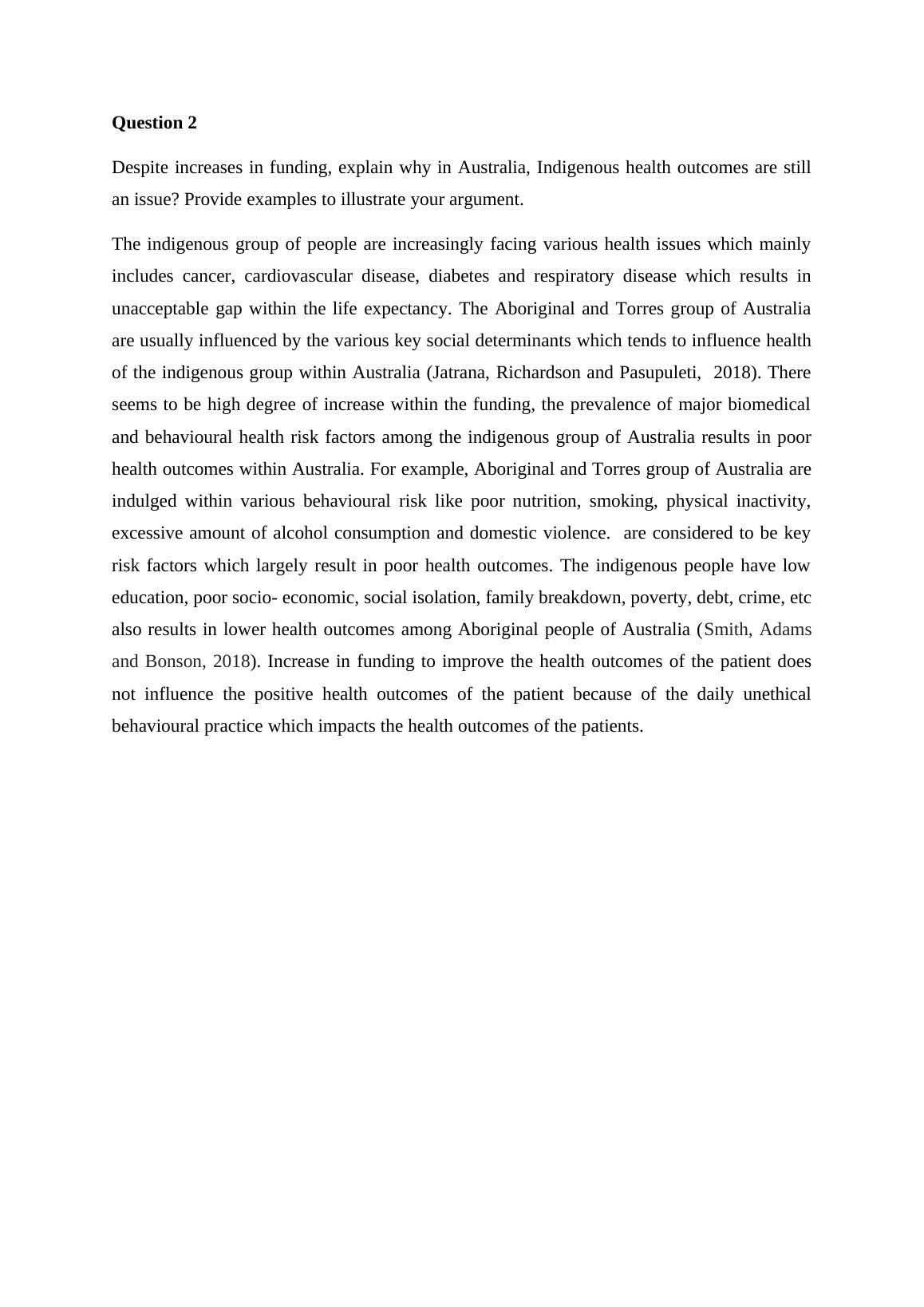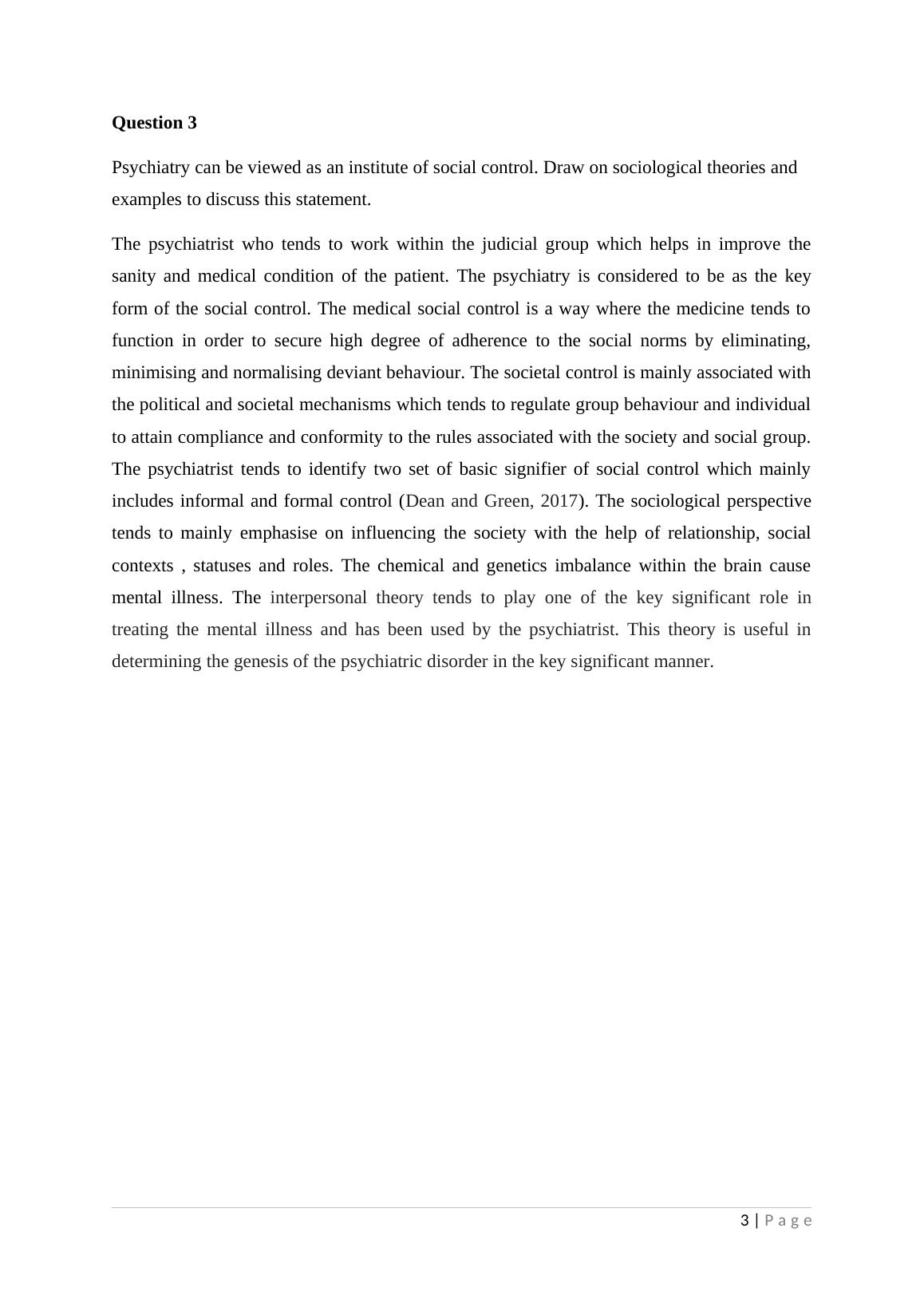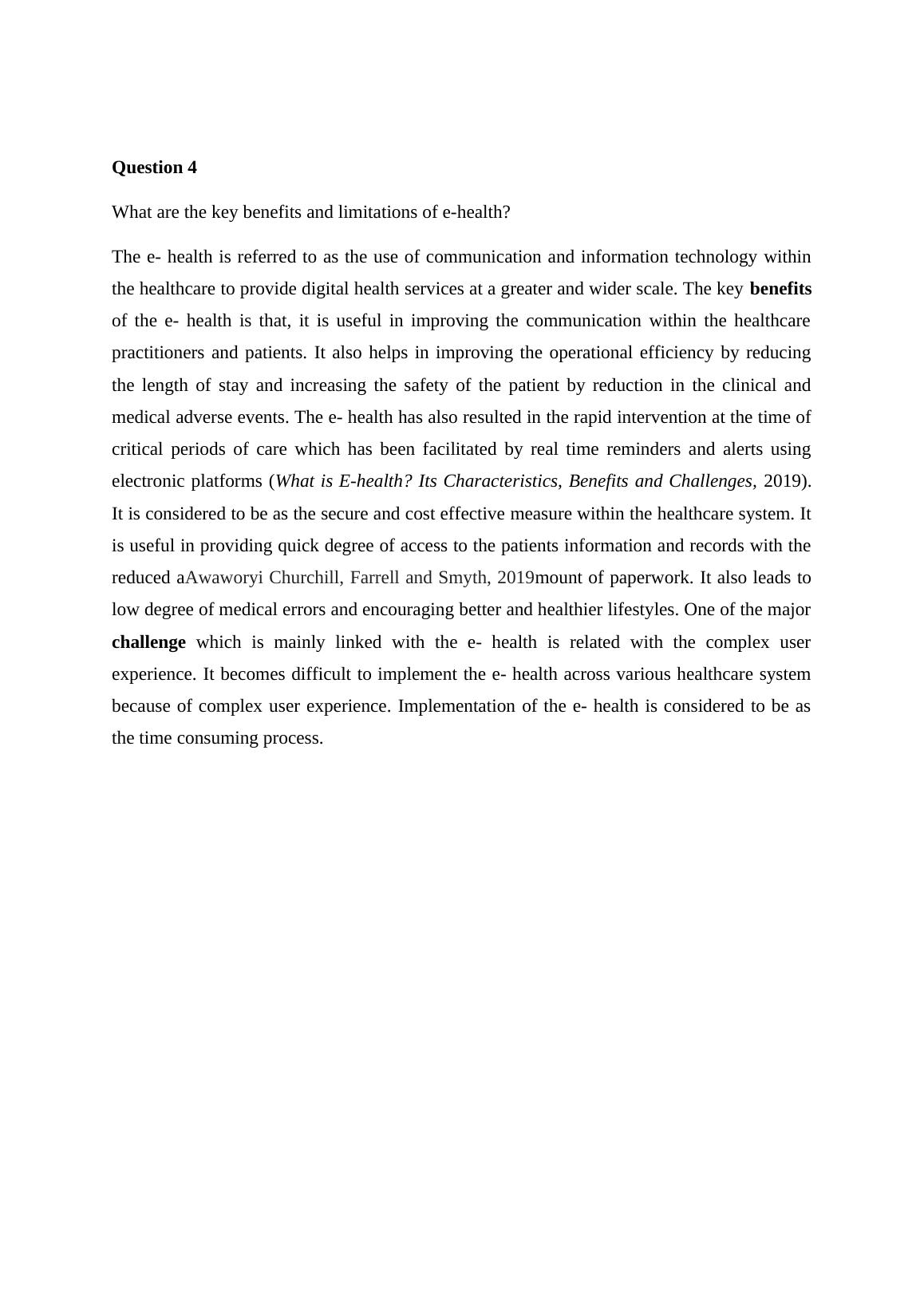Insights of Post-Modernist Perspectives on Health Practice
This is a written assessment for the HSC210 Health Sociology course. It consists of 9 short answer questions covering topics such as post-modernist perspectives in health practice, Indigenous health outcomes, psychiatry as an institute of social control, e-health benefits and limitations, the influence of ideology and politics on health outcomes, functionalist theory, medical dominance in Australia, and the concept of discourse in health and biomedicine. The assignment requires students to provide examples and draw on sociological theories to support their arguments.
Added on 2023-01-11
About This Document
Insights of Post-Modernist Perspectives on Health Practice
This is a written assessment for the HSC210 Health Sociology course. It consists of 9 short answer questions covering topics such as post-modernist perspectives in health practice, Indigenous health outcomes, psychiatry as an institute of social control, e-health benefits and limitations, the influence of ideology and politics on health outcomes, functionalist theory, medical dominance in Australia, and the concept of discourse in health and biomedicine. The assignment requires students to provide examples and draw on sociological theories to support their arguments.
Added on 2023-01-11
End of preview
Want to access all the pages? Upload your documents or become a member.




